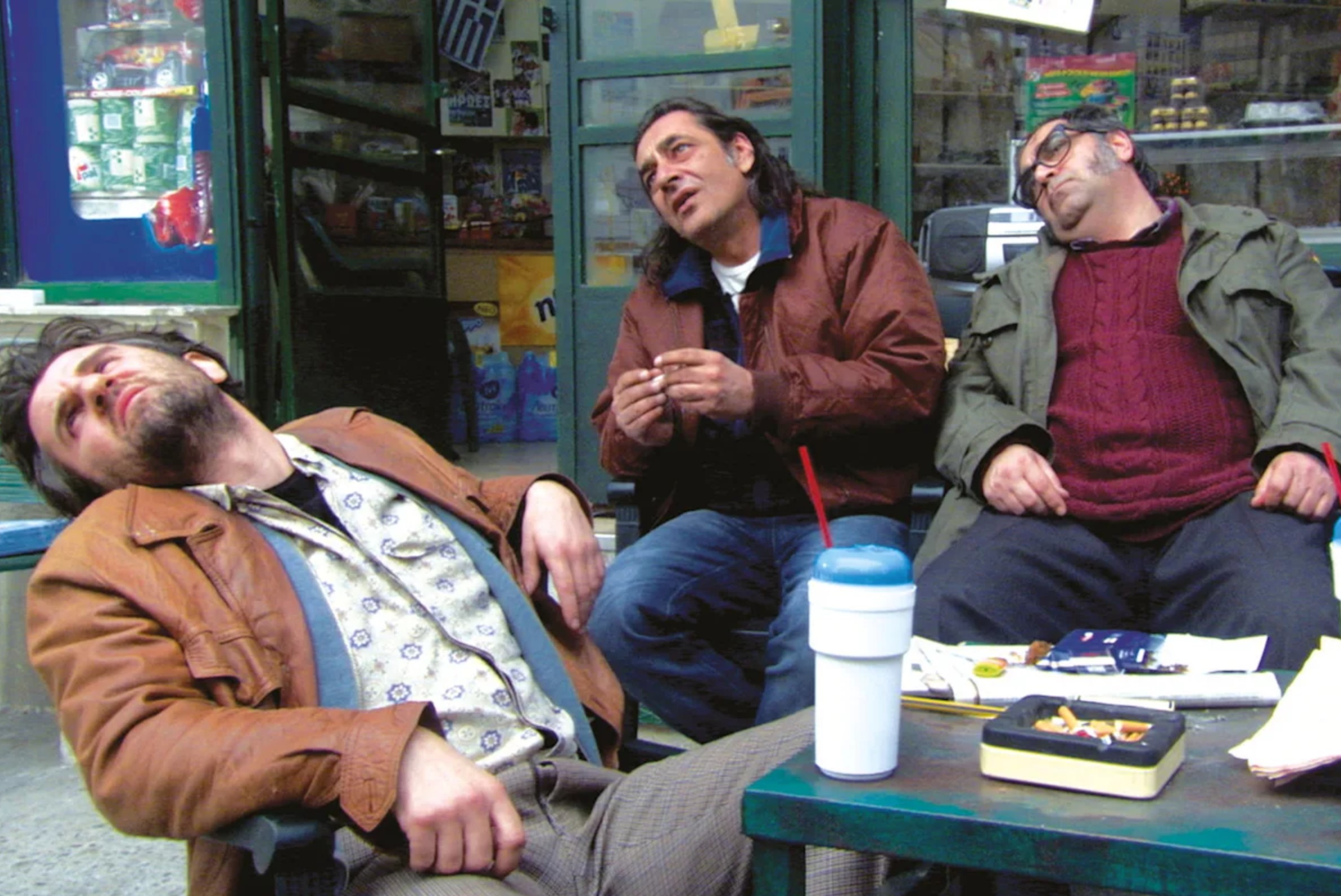Filippos Tsitos: Plato's Academy [Kleine Wunder in Athen] [OmeU, Engl. Subt.] Greece/Germany, 2009, R: Filippos Tsitos with Antonis Kafetzopoulos, Anastasis Kozdine, Yorgos Souxes, Maria Zorba, Kostas Koronaios, 103 Min.
Q&A and open discussion [EN]
JOIN US to this SCREENING of Plato`s Academy with SPECIAL GUESTS: Antonis Kafetzopoulos (Main Actor), Filippos Tsitos (Director), Sofia Stavrianidou (Director of the Greek Film festival in Berlin) and Elson Zguri (Writer, Activist) on Albanian migration to Greece, stereotypes, belonging, and the film's relevance to today where anti-immigration discourse has become (almost) normal.
AWARDS:
Antonis Kafetzopoulos: 2009 Gewinner Silver Leopard, LOCARNO FILM FESTIVAL - Best Actor
Filippos Tsitos: 2009 Nominierte Golden Leopard; Filippos Tsitos: 2009 Gewinner Prize of the Ecumenical Jury
2010 Gewinner Hellenic Film Academy Award; Filippos Tsitos: 2010 Nominierte Hellenic Film Academy Award
Moriatis Konstantinos: 2010 Nominierte Hellenic Film Academy Award; Alexis Kardaras: 2010 Nominierte Hellenic Film Academy Award
LOCARNO FILM REVIEW: Intelligent, warm and very funny, Filippos Tsitos’s “Akadimia Platonos” (Plato’s Academy) is a small big tale of a proudly nationalistic Greek man who discovers that he might actually be Albanian, a situation that causes trouble for his family and friends.
With a great ensemble cast of pleasing skill, the film addresses a worldwide problem with considerable insight, wise humor and a very delicate touch.
DO NOT MISS THIS UNIQUE OPPORTUNITY to Watch it with the SPECIAL GUESTS! + OPEN DEBATE at the End of the Movie'!
EN:
Platos Academy (2009) is a bittersweet comedy-drama directed by Filippos Tsitos. The story centers on Stavros, a nationalist, middle-aged tobacconist in Athens who leads a routine life complaining about immigrants (Albanians and Chinese) from his shop doorway with fellow shopkeepers. He cares for his aging, increasingly senile mother, after his wife left. One day, his world is shaken when his mother unexpectedly embraces an Albanian worker, calling him my son in Albanian. This revelation raises questions about Stavross family background and identity. As suspicion mounts among his friends and neighbors, Stavros is forced to confront what it really means to be Greek, xenophobia, belonging, and the fragile assumptions we build around identity.
DE:
Platos Academy [Kleine Wunder in Athen] (2009) ist eine bittersüße Komödie-Drama unter der Regie von Filippos Tsitos. Im Mittelpunkt steht Stavros, ein nationalistisch eingestellter, mittvierziger Tabakladenbesitzer in Athen, der sein Leben damit verbringt, gemeinsam mit anderen Ladeninhabern über Einwanderer (Albaner, Chinesen) vor seinem Laden zu klagen. Seine Frau hat ihn verlassen, und er kümmert sich um seine alternde Mutter, die zunehmend Anzeichen von Demenz zeigt. Eines Tages aber verändert ein Zwischenfall alles: Seine Mutter umarmt einen albanischen Arbeiter und spricht ihn in albanischer Sprache als ihren Sohn an. Diese Offenbarung wirft Fragen über Stavros Herkunft und Identität auf. Als Zweifel in seinem Umfeld wachsen, wird Stavros gezwungen, seine bisherigen Überzeugungen über Nationalität, Zugehörigkeit und Fremdenfeindlichkeit zu hinterfragen.
Trailer:
